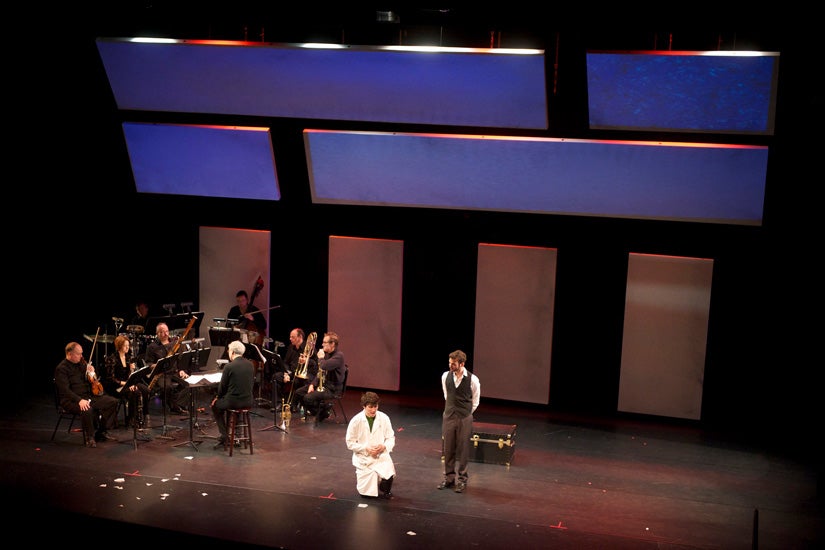Music Partnerships
The Georgetown University Music Program is proud to be in partnership with outstanding professional musical ensembles and organizations, including the following:


Postclassical Ensemble
Called by The Washington Post “a welcome, edgy addition to the musical life of Washington,” PostClassical Ensemble was created by Angel Gil-Ordóñez and Joseph Horowitz in 2001 and made its official debut in May 2003. “More than an orchestra,” it breaks out of classical music, with its implied notion of a high-culture remote from popular art. Its concerts regularly incorporate folk songs, dance, film, poetry, and commentary in order to serve existing audiences hungry for deeper engagement and to cultivate adventurous new listeners.
Past collaborations on thematic concerts and conferences have included Copland and the Cold War, Interpreting Liszt, Falla/Stravinsky, and Schubert Uncorked.
Visit the PostClassical Ensemble’s website and read a recent review in the Washington Post.
Future of Music Coalition
Future of Music Coalition (FMC) is a national nonprofit organization that works to ensure a diverse musical culture where artists flourish, are compensated fairly for their work, and where fans can find the music they want. Since its founding in 2000, FMC has provided an important forum for discussion about issues at the intersection of music, technology, policy, and law. Guided by a firm conviction that public policy has a real impact on the lives of both musicians and fans, FMC advocates for a balanced approach to music in the digital age — one that reflects the interests of all stakeholders, and not just the powerful few.
Every year, the Music Program co-hosts the annual Future of Music Summit on campus, a national event that draws more than 300 top performers, lawyers, politicians, and policy advocates working in connection with the music/media industry.
Visit the Future of Music Coalition’s website.
Modern Musick
Modern Musick, under the artistic leadership of music director John Moran and concertmaster Risa Browder, is a baroque chamber orchestra founded in Washington, DC in January 2002. Taking its name from an eighteenth-century primer The Modern Musick-Master or the Universal Musician, Modern Musick seeks, through the immediacy of live performance, to restore a sense of newness to the music of the 17th and 18th centuries. To this end, Modern Musick uses period instruments and historical performance practices as a starting point allowing the musicians the freedom to make new discoveries. Modo (Latin for “just now”), the root of the word “modern” is the perfect description for cutting-edge music making of the moment.
An ensemble-in-residence at Georgetown, Modern Musick has performed a series of collaborative concerts with the Music Program and the Jesuit Community, including Music for Advent and Holy Week.
Georgetown Entertainment and Media Alliance
Founded in 2002, The Georgetown Entertainment & Media Alliance (GEMA) aims to elevate Georgetown’s profile in the entertainment and media community, by strengthening the ties between the University and its alumni and by developing relevant programs and resources for both alumni and current Georgetown students. Comprised of alumni, students, parents, and friends affiliated with the media and entertainment industry, GEMA has grown to over 2,000 members representing a diversity of specialties including film, television, theater, publishing, music, sports, journalism, public relations, and many other fields in media and entertainment.
GEMA offers an externship program, a unique opportunity for undergraduate seniors, MBA, Law, and all other students enrolled in a graduate program at Georgetown to spend time with experienced professionals in entertainment and media and get a firsthand look at day-to-day operations in the industry.
Read about GEMA.